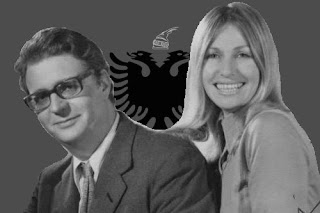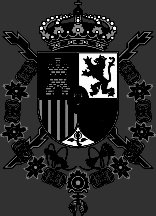The respected scholar returned to his native Fuzhou and taught school as a humble teacher for the next thirty years. However, though notoriously slow to do so, the Empress-Dowager was not so close-minded as many people think and did begin to adopt some reforms toward the end of her life. She also decided that the infant prince, Aisin-Gioro Pu-yi, would be the next to sit on the Dragon Throne. Putting personal feelings aside, the Empress-Dowager decided that no one would be better qualified for the job of tutor to the future boy-emperor than Chen Pao-shen. He was summoned from Fuzhou to the Forbidden City where he remained for the next twenty-one years. In the past he had been sub-chancellor of the Grand Secretariat and vice-president of the Board of Rites but as tutor to the emperor he would have more influence than he would ever have had before in the future of Imperial China. Unfortunately, Imperial China was not to last very long, coming to an end in 1911 and 1912. Still, Chen Pao-shen remained loyal to the Qing dynasty and carried on with his duties as imperial tutor.
 |
| Chen Pao shen (right) with the Emperor |
Chen Pao-shen was as committed as any other Qing loyalist to the restoration of the empire, however, he wanted to keep it a purely internal matter. He was a widely respected scholar at the time and was able to meet on good terms with representatives of the republic. Under the Articles of Favorable Treatment, the republic had made pretty good deal for the emperor and Chen Pao-shen did not want to jeopardize that. He preferred to work with Chinese republican officials and generals to get them on the side of the monarchist alternative and so restore the imperial system from the inside. Because of this, he supported the short-lived restoration of the empire in 1917 by General Chang Hsun (Zhang Xun) but he also learned from that fiasco to be very careful about stepping out on a limb before knowing that there was a reasonable chance of success. He also learned from that experience that promises of support from government officials could not always be trusted.
In time, Chen Pao-shen began to be overshadowed by the more ambitious mandarin Zheng Xiaoxu. Still, in 1925, after the Emperor had been evicted from the Forbidden City and forced to relocate to Tianjin, Chen Pao-shen packed up his family and followed his monarch into “exile”. It was there, however, that the eventual break came as the court divided into two factions, represented by Chen Pao-shen and Zheng Xiaoxu. It involved, of course, the friendly overtures of the Japanese culminating in their offer to help restore the Emperor to power in Manchuria. Zheng Xiaoxu pressed the Emperor to accept the Japanese offer, fearful that such an opportunity would never come again. This was not unjustified. After all, for decades the imperial court had tried to gain support (or buy it) with republican officials and warlords all to no avail. They took the Emperor’s money but never actually took any action to help him. Japan, another monarchy that believed firmly in the imperial system, was actually taking action. Chen Pao-shen, however, wished to take things slower and more cautiously.
Chen Pao-shen did not want to offend the Chinese republic but to try to gain more prestige and more of a following with the goal of the republic restoring the Articles of Favorable Treatment. Once that was done, they could try to influence Chinese officials to restore the monarchy completely. This strategy, also, has good points to it. The Qing court had been forced to rely on foreign support in the past and, in the end, the Qing suffered for it. He did not want the Emperor restored by a foreign power and he also believed that the Japanese would never support a total restoration of the Great Qing Empire across the whole of China. He believed that they should try to stay close and relevant to the circle of power in China and not make an enemy of the Chinese government. When it came down to it, the Emperor chose to accept the Japanese offer as the Chinese republicans, especially after the desecration of the Qing tombs, had completely disgusted him and turned him off of any idea of ever reconciling with them. When the Emperor made his decision, Chen Pao-shen, for the first time, refused to go along with and would not go to Manchuria. He remained in China and died not long after in 1935 at the age of 88.


















































